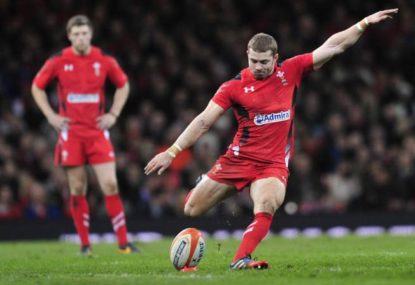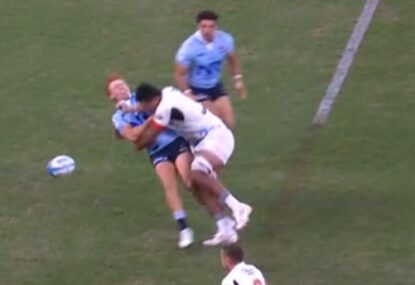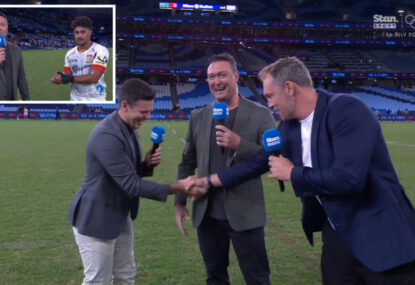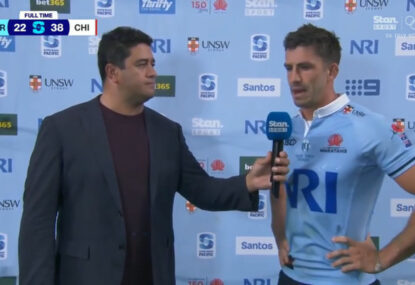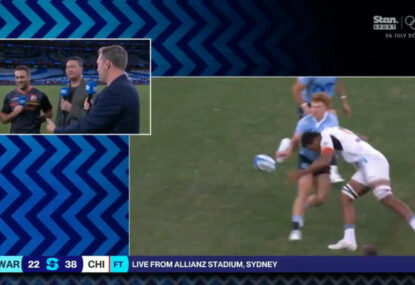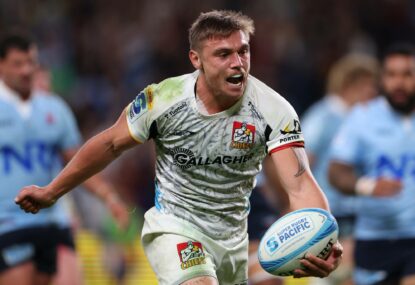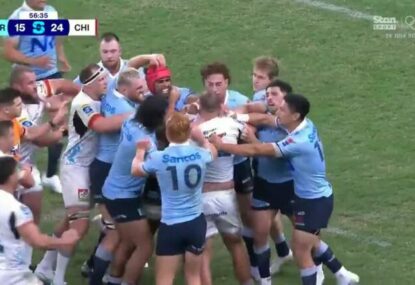As we touched on in Part I of our Rugby World Cup preview, Wales appear to have peaked at the wrong time. After building success with Six Nations triumphs in 2012 and 2013, Wales have been on a downward spiral.
Ever since the end of the 2013 Six Nations, Wales’ performances have been quite flat and their tactics seem tired.
>> 2015 Rugby World Cup Fixtures
This may be attributable to post-Lions tour fatigue, as Wales had the largest contingent of players on the tour to Australia.
They are not helped by the fact that other teams seem to have figured their game plan out. The best example of this was in their most recent Six Nations game against Ireland. Ireland gave everyone else the perfect blueprint for a victory over Wales.
They completely nullified every threat that the Welsh bring by pressurising their set-piece (thereby not allowing them quick ball), pushing up aggressively on Jamie Roberts in midfield (thereby not allowing them to get over the gain line), and by dominating territory by kicking the ball in behind their huge wingers (who, while devastating with ball in hand, were shown up to be quite slow on the turn).
The Welsh coaching ticket seemed to recognise the shortcomings of their game plan after that Six Nations Championship, as they attempted to be more expansive in their first two games of the most recent November series, which were against Australia and Fiji.
This proved to be a foolish decision, as throwing the ball around suited both of those teams.
In fact, taking into account two missed placekicks, Wales could almost have lost to Fiji.
Gatland and co. then reverted to Warrenball against New Zealand, which proved to be more effective.
Another problem for Wales is that, despite being able to raise their intensity levels sufficiently, they struggle to maintain the necessary composure to close out games against the big three of New Zealand, South Africa and Australia.
Although they stayed with New Zealand for 67 minutes, displaying good intensity and aggression in their most recent game against them, they were blown away thereafter.
They haven’t managed a win over Australia in their last ten attempts, despite coming close on several occasions. This is difficult to put a positive spin on, given the Wallabies’ wretched 2012 form.
As for their recent victory over South Africa, they panicked badly towards the end of the game, despite what biased Welsh pundits in certain quarters of the media would have you believe.
The best example of this panic was when South Africa were awarded a penalty in the 77th minute, and Handré Pollard kicked the ball too far.
It should have gone out behind the dead-ball area, but instead Scott Williams slapped it down, and in an effort to try and control the ball, ended up kicking it out behind the dead-ball line, giving South Africa a five-metre scrum.
Wales won this game because of the staggering amount of errors that South Africa made, not because they showed the composure that is required to close out a tight game against a top-level team. However, the victory itself will no doubt boost their confidence going forward.
Gatland has a clear idea of his starting XV, but there are question marks over their best half-back pairing.
Mike Phillips’ physicality and sniping threat are vital to Gatland’s game plan, but he seems to be in decline.
Rhys Webb has gone up a level in terms of his performances and has overtaken Philips as Wales’ first-choice 9, but he does not have the same physicality as Philips. Physicality is crucial to Gatland’s game plan.
Another issue for Wales is that it is not clear who their best out-half is. Dan Biggar has an excellent tactical kicking game, while Rhys Priestland (who is also good at the tactical kicking aspect of out-half play) is a better running out-half who gets more out of his back line by playing closer to the gain line.
However, the latter’s inconsistent form and proneness to injury mean that picking Dan Biggar as their starting ten would be a more sensible, low-risk (if a little mundane) option for Wales.
Biggar’s recent form in the most recent November series further warrants his selection as Wales’ first-choice out-half.
Wales’ chances of even making it out of the pool stages of next year’s World Cup are not good, considering that they have England and Australia in their pool. These are two teams who appear to be in the ascendency over them, even taking England’s poor form into account.
However, a friendly fixture list in next year’s Six Nations Championship with Ireland and England at home may yet prove to be a springboard for good performances in the World Cup.






























































































